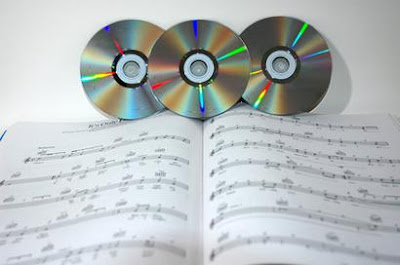REMEMBER: somebody's making money on your music. It may as well be you.
The music industry as we know it is archaic and borders on irrelevant. However, now is the best time to build a career as an indie musician. So how do indie musicians make money with their music? Understanding the answer to this question requires understanding the language of music publishing. The laws and practices are changing in real time. However, learning the system and the way it's set up can help artists better interpret the language in the field and determine how they can benefit in your own way.
One of the most straightforward models for the indie music maker is the Direct To Fan model of distribution and promotion. This model involves building relationships with a fan base that will perpetually support you throughout your career. The Direct To Fan model requires a bit of finesse, timing, consistent engagement, and etiquette. This includes regularly producing new art that fans can interact with through monetized media, creating things that are fun enough that they become topics of discussion among your fans and their friends, and engaging through social media with those who WANT you to engage with them. Don't tell people on facebook that they should like your page because you liked theirs. Nobody wants to feel muscled into listening to your music. Draw your fans to you.
Draw your fan base to you by getting out there, performing, and carrying an email list. Let folks know you're collecting emails and sweeten the deal by offering free downloads of your music. You can also build your fan base digitally by putting a squeeze page on your website. If you have a new twitter or facebook account, post this on your website or send the information to your email list in one of your newsletters. Some artists entice new fans by simply being dope: putting out crazy looking flyers or music videos, dressing like a spectacle, and/or always delivering an incredible show. Be you and the people who like you will always show up. Folks want to buy your music and experience your artistry. Make it easy for them!
Using a Direct To Fan model, indie artists can technically sustain themselves. However, if they ever wanted to go on vacation or simply got too tired to keep up the craze, they would lose their financial base. Prevent this through publishing. Music is a growth investment, which means that over time, music gains value at a rate that exceeds average growth in the market. Music publishers make sure you get the royalties (money) from your music being used commercially. That means that whenever your music is heard in an elevator at Macy's, in a movie, on internet radio, performed in a live venue, downloaded, streamed, or covered and posted on YouTube, you are owed cash. The entities that collect your money, or collection agencies, vary, as they are all private businesses that operate under their own rules. It's important to research the equation that works for you. But remember: everybody's trying to make money. Read the fine print and make sure you're aware of how you're getting paid.
 |
| Ya'll just don't know. I'm fa real gon write this muthafucka here. |
Yet another option is to function as your own music publisher and start a label. All these music publishing companies and labels are made up of people who are no smarter than you. You can do the same things they do. However, unless you plan on being like the Beatles and recording 30 songs a day (exaggeration) to build up an amazing, voluminous catalog, you may want to consider publishing other people's music as well. Some folks don't have time or aren't interested in music publishing, so think about how you can help others get their music out there. There are new indie music labels popping up all the time that seek licensing opportunities and collect and distribute mechanical, performance, and print royalties to songwriters. Take the initiative and start your own publishing company.
Of course, many folks may be reading this, saying "I just wanna make music! SHIT!" Well, nobody's stopping you.
If you want to start researching, here are some recently published articles that I found useful (also see the links throughout this post). Everybody's goals are different. Decide what your goals are FIRST. Your business plan and marketing strategy are the first steps towards eliminating confusion in how you're going to handle your music career and interpret the language that is relevant to you. The search gets much easier after that. Special thanks to Chaquis Maliq for keeping me on my toes.
Ari's Take. An article comparing CDBaby to Tunecore from an artist's perspective
Royalty Exchange discusses the difference between Mechanical and Performance Royalties
Love,
Blue


No comments:
Post a Comment